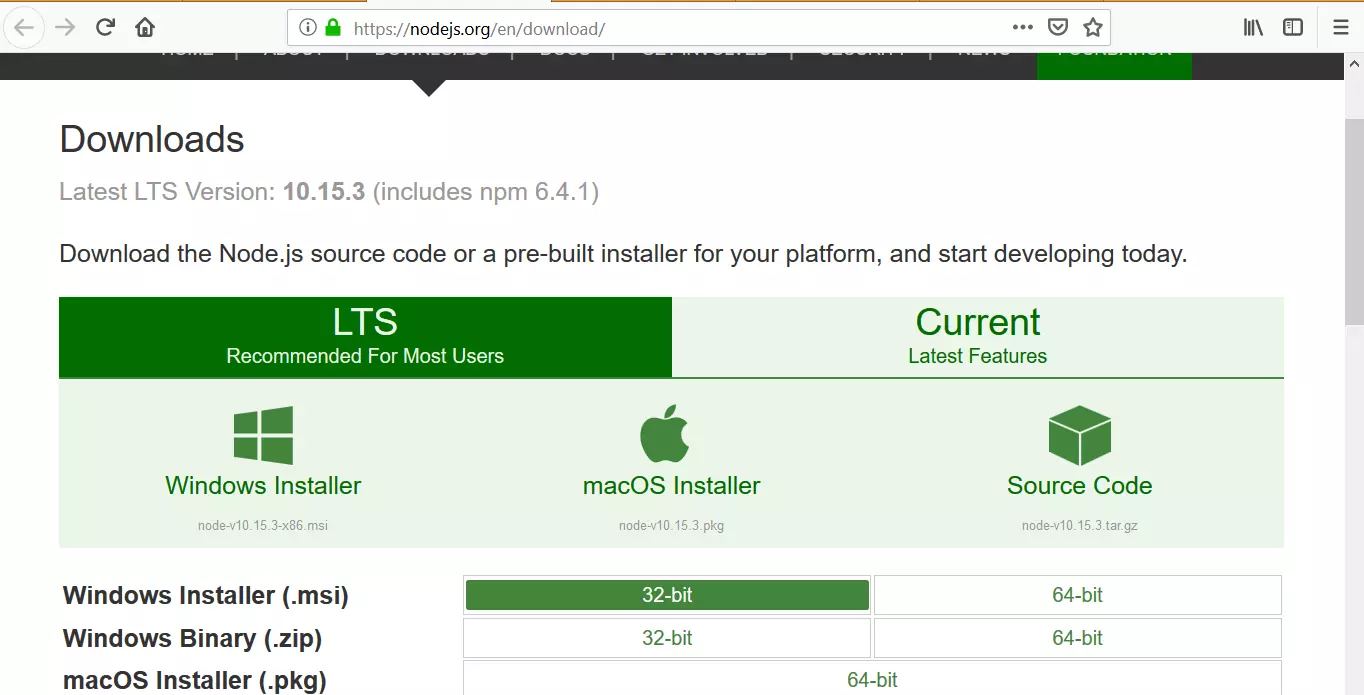

Installing Node.js through Homebrew is similarly executing another simple one-line command: $ brew install node Nonetheless, the Homebrew installation is very simple with one liner command on the terminal: $ /bin/bash -c "$(curl -fsSL )" Despite its popularity, Homebrew is not a built-in tool on Mac. It runs on command line interface to perform package or app installation/upgrade/removal through brew executable.
Homebrew is popular package management system for MacOS. Check through command line to confirm that Node.js has been installed $ node -v Option 2: Update Node.js through Homebrew You can also pick Current version (2) for the binary with latest / newest features.Ĥ. This is usually the preferred choice if you are developing a Node.js app to be deployed on a production server. usr/local/include/node/libplatform/libplatform.The LTS (Long Term Support) version (1) is the choice when you want to run a stable version. usr/local/include/node/android-ifaddrs.h If you didn't put them there on purpose they could cause problems whenīuilding Homebrew formulae, and may need to be deleted. Warning: Unbrewed header files were found in /usr/local/include. In particular, Pythons installed to /Library can interfere Homebrew only supports building against the System-provided Python or aīrewed Python. Warning: Python is installed at /Library/Frameworks/amework Library/Frameworks/amework/Versions/3.5/bin/python3.5m-config Library/Frameworks/amework/Versions/3.5/bin/python3.5-config Library/Frameworks/amework/Versions/3.5/bin/python3-config

Homebrew if the config script overrides a system or Homebrew provided
#Brew update nodejs software
Having additional scripts in your path can confuse software installed via Software packages are installed, and what additional flags to use when `./configure` scripts often look for *-config scripts to determine if Warning: "config" scripts exist outside your system or Homebrew directories. Working fine: please don't worry and just ignore them. Please note that these warnings are just used to help the Homebrew maintainers Aleeshas-MacBook-Air:~ aleesha$ brew doctor I am not sure what exactly needs to be done here.ĮDIT: Executed brew doctor to check for system anomalies.
#Brew update nodejs upgrade
Aleeshas-MacBook-Air:~ aleesha$ brew upgrade node However after this step when I execute the upgrade command, it failed. Root:wheel /usr/local Aleeshas-MacBook-Air:~ aleesha$ Return /usr/local to its default ownership with: sudo chown => Migrated HOMEBREW_REPOSITORY to /usr/local/Homebrew! Homebrew no longer needs to have ownership of /usr/local. => Migrating HOMEBREW_REPOSITORY (please wait). Last few lines on the command prompt were: I think it was successfully executed since I didn't see any error message. So after searching for solution on Google, I ran this command: sudo chown -R $(whoami) /usr/localĪfter that I again executed the brew update command. Ownership and permissions of /usr/local back to your user account: However, I was getting the below error when I executed the command:īrew update Error: /usr/local is not writable. I want to update Node.js to it's latest version by following these steps.įirst I tried to execute: brew update. I have currently installed Node.js 4.4.3 Aleeshas-MacBook-Air:~ aleesha$ node -v


 0 kommentar(er)
0 kommentar(er)
